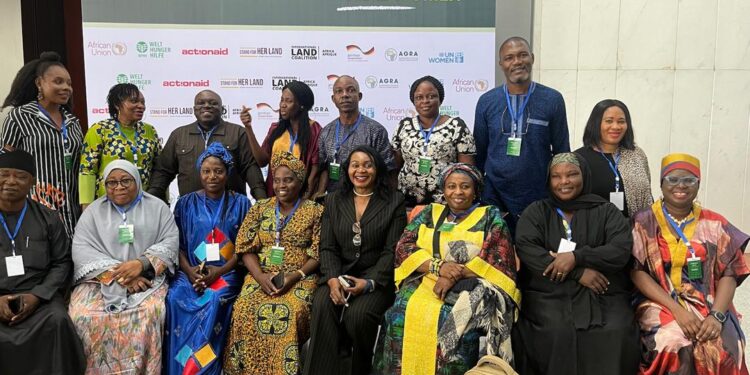The Nigerian government, in partnership with the International Fund for Agricultural Development (IFAD), underscored the urgent need to invest in rural women during the 2024 International Day of Rural Women Summit.
Speaking at the event, IFAD’s Value Chain Development Programme (VCDP) Knowledge Management and Communications Coordinator, Mrs. Vera Onyeaka-Onyilo, highlighted the importance of supporting women in rural agriculture. The summit took place on October 15 at the African Union headquarters in Addis Ababa, Ethiopia, and gathered key stakeholders to focus on female empowerment in agriculture.
Organized by the African Union and development partners, the summit centered around the theme: “Empowering Women Living in Rural Areas through Education and Access to Technology: Bridging the Gap for Inclusive and Sustainable Agri-Food Systems in Africa.”
Mrs. Patricia Achii, a panelist from the FGN/IFAD-Assisted Value Chain Development Programme, spoke on the transformative power of education. “With the support of VCDP, I set up an adult literacy center for women in my community, and more than 1,000 women have completed the program,” she shared, explaining that these women are now able to manage their farms as businesses, proving how education and technology are pivotal.
Similarly, Mrs. Temilade Ebiware, a beneficiary of the IFAD-Livelihood Improvement Family Enterprises Niger-Delta (LIFE-ND) program, highlighted her success in aquaculture, stating, “The capacity-building on climate-smart agriculture from LIFE-ND has helped me adapt to climate challenges in my business.”
IFAD Nigeria’s Country Director, Mrs. Dede Ekoue, emphasized the organization’s ongoing commitment to supporting smallholder farmers, especially rural women. “We promote initiatives like the Gender Action Learning Systems (GALS) to create more equitable economic opportunities between women and men,” Ekoue explained. She added that the GALS methodology has empowered women to assert their voices both at home and in their communities.
African Union Commissioner for Agriculture, Rural Development, Blue Economy, and Sustainable Environment, Ambassador Josefa Sacko, also emphasized women’s crucial role in Africa’s agricultural sector. “Despite their contributions, women still face numerous challenges, such as limited access to education, resources, and political representation,” she said, reaffirming the AU’s commitment to working with partners on policies that support women in agriculture.
The summit concluded with a call-to-action roadmap and a marketplace exhibition that showcased best practices from IFAD projects. Attendees had opportunities to network, exchange insights, and discuss strategies for empowering women and youth for sustainable food security and income growth.
























